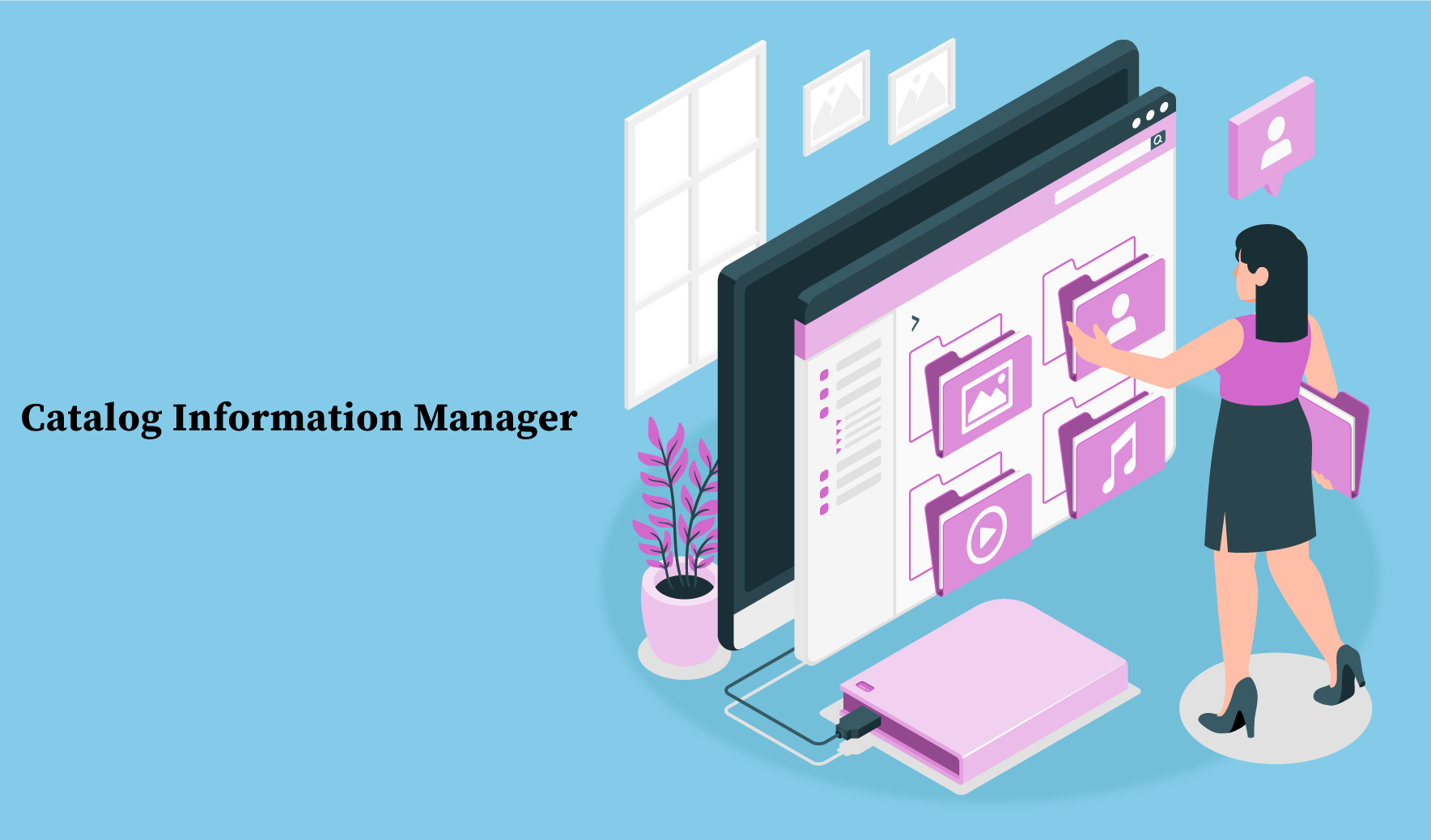Businesses must find new ways to manage catalog information as the digital world continues to expand. Business owners seeking to streamline processes and improve their bottom line can benefit from advanced catalog information managers for managing their product portfolio. An advanced catalog information manager can help your business stay on top of the ever-changing e-commerce landscape with these top 10 features. Your catalog information will never be the same again with this cutting-edge technology that automates data entry and updates products in real-time across multiple environments with the right control access. Taking a closer look at the features, let's see what they can do for you and your business.
Managing product catalogs can be a daunting task for any organization. But an advanced catalog information manager can make this task much easier and streamlined. Most companies use catalog management tools to manage their product information, and CatalogsBuilder is the easiest tool to use compared to a lot of other tools that require skillful execution and learning. You can learn more about the CatalogsBuilder tool here. Now let’s see the top 10 features of an advanced catalog information manager:
1. Centralized Management
The concept of centralized management refers to the practice of controlling all aspects of an organization from one place. By doing so, resources, processes, and personnel can be controlled more efficiently and effectively. In order to facilitate centralized management, an advanced catalog information manager is essential. An organization can use this software to view all its products, services, and resources in a unified way. Managers can use this information to allocate resources efficiently and improve processes across the entire company.
An advanced catalog information manager can also help organizations make better use of their existing resources. By providing a comprehensive view of all the products and services available, managers can identify areas where resources are underutilized or overused. This can lead to more efficient resource allocation and improved productivity. Additionally, the software can help managers identify opportunities for cost savings by comparing the prices of similar products across different departments or suppliers.
Overall, centralized management with the help of an advanced catalog information manager is a powerful tool for organizations looking to improve their operational efficiency. Managers can improve productivity across the organization by centralizing control over resources and processes. Organizations can be proactive and cost-effective with the right tools to stay ahead of their competition.
2. Customizable Product Information
An advanced catalog information manager allows you to customize product information based on your business requirements. You can define the product attributes, descriptions, and specifications to meet your unique needs.
Customizable product information is a critical aspect of modern business operations. Advanced catalog information managers are crucial in this regard as they help companies manage and organize product information effectively. With the help of advanced catalog information managers, companies can create, edit, and publish product information with ease. These managers enable businesses to keep all product information in a centralized location, making it easier for them to manage and update.
Nowadays, companies must provide the highest level of customization to their customers to remain competitive. The company therefore needs to provide a wide range of product options to its customers and provide them with detailed product information. Advanced catalog information managers can help businesses achieve this by providing a platform for businesses to create and manage product data, including product descriptions, images, and specifications. This, in turn, allows businesses to provide an accurate and detailed view of their products, which can increase customer satisfaction and loyalty.
Advanced catalog information managers are an essential part of modern business operations. The reason why product information management is important is that they simplify managing and updating product information, providing a high level of customization to their customers. With the help of these managers, businesses can create, edit, and publish product information in a centralized location, providing accurate and detailed product information to their customers. As such, advanced catalog information managers are a vital tool for companies looking to remain competitive in today's market.
3. Automated Data Entry
Advanced catalog information managers automate data entry tasks such as importing product data from suppliers or manufacturers. Automated data entry is a highly efficient method that allows organizations to streamline data processing procedures. This technology enables data entry to be automated through the extraction of pertinent information from various sources, including forms, invoices, receipts, and other documents. Incorporating automated data entry into your organization can significantly reduce the amount of time and resources you devote to manual data entry, as well as reduce errors that occur due to human error.
One of the most critical components of automated data entry technology is the advanced catalog information manager. This tool provides a centralized platform for managing and organizing data across multiple sources. It enables organizations to categorize and classify data based on specific criteria, making it easier to search and retrieve relevant information quickly. With an advanced catalog information manager, organizations can gain valuable insights into their data, identify patterns and trends, and make informed decisions based on the insights obtained.
Automated data entry is a powerful technology that can help organizations streamline their data processing procedures and improve their operational efficiency. By leveraging advanced software tools and catalog information managers, organizations can effectively manage their data, reduce errors, and gain insights into their business operations. With the right implementation strategy and professional guidance, organizations can leverage automated data entry to achieve their business goals and stay ahead of their competition.
4. Multi-Lingual Support
Multilingual support is provided by an advanced catalog information manager, allowing you to maintain product catalogs in multiple languages. Global businesses will particularly benefit from this.
Multi-language support is a crucial feature of an advanced catalog information manager for companies with global operations or that serve international customers. Using this feature, businesses can easily translate catalog information into multiple languages to serve all customers regardless of their language preference. Furthermore, this feature can ensure that businesses maintain consistency in their catalog information regardless of the language they use.
5. Advanced Search Capabilities
An advanced catalog information manager provides advanced search capabilities, allowing you to quickly find the products you need. You can search based on product attributes, descriptions, and specifications.
It also offers advanced search filters, such as SKU, category, and price range. This feature makes it easy to find specific products in a large catalog, which saves users time and enhances their productivity.
6. Dynamic Pricing
An advanced catalog information manager allows you to set dynamic pricing for your products. Dynamic pricing is a pricing strategy that enables retailers to adjust the price of their products or services based on various market factors such as demand, seasonality, and competition.
This pricing model is designed to optimize profits by ensuring that prices are always in line with market trends. Advanced catalog information managers play a critical role in the implementation of dynamic pricing strategies. These managers provide retailers with real-time data and insights into market trends, enabling them to make informed pricing decisions.
One of the top 10 features of advanced catalog information managers is their ability to provide retailers with detailed product information. This information includes product specifications, pricing, and availability. This feature helps retailers to make informed pricing decisions based on current market trends. Additionally, advanced catalog information managers provide retailers with granular insights into product performance, enabling them to identify areas where dynamic pricing strategies can be implemented to drive sales.
Another top feature of advanced catalog information managers is their ability to integrate with other systems such as pricing engines and inventory management systems. This integration enables
7. Integration with Other Systems
An advanced catalog information manager can be integrated with other systems such as ERP, CRM, and e-commerce platforms. This provides a seamless flow of data across all systems, reducing the chances of errors and improving efficiency.
Integration with other systems is a crucial aspect of any advanced catalog information manager. A high-quality catalog management system should be able to integrate with other platforms seamlessly. This allows for a better flow of data between systems, which ultimately leads to more efficient business operations. The top 10 features of an advanced catalog information manager should include robust integration capabilities with other systems. This ensures that the catalog management system is working in unison with other critical business platforms, such as ERP and CRM systems.
One of the key benefits of integration is the ability to automate manual processes. By integrating with other systems, information can be shared in real-time, which eliminates the need for manual data entry across different platforms. This not only saves time but also reduces the risk of human error. Additionally, integration can improve data accuracy and consistency, which ultimately leads to better decision-making. With an advanced catalog information manager, businesses can enjoy the benefits of a streamlined workflow and improved efficiency.
8. Product Categorization
An advanced catalog information manager provides the ability to categorize products based on various factors such as type, brand, and price range. This makes it easier for customers to find the products they need.
Product categorization is an essential aspect of e-commerce and retail businesses. It refers to the process of organizing products into logical groups, making them easier to find and navigate. Effective product categorization leads to improved searchability and a better user experience for customers. Advanced catalog information managers have become increasingly popular in recent years, providing a range of features that help businesses to organize and manage their product data effectively.
One of the top 10 features of an advanced catalog information manager is the ability to create and manage multiple product categories and subcategories. This allows businesses to create a hierarchical structure of products, making it easier for customers to navigate and find what they are looking for. Advanced catalog information managers also provide the ability to apply tags and attributes to products, further improving search ability and filtering options.
Another key feature of an advanced catalog information manager is the ability to import and export product data in various formats. This is particularly useful for businesses that sell through multiple channels, such as marketplaces and social media platforms.
9. Collaboration and Workflow Management
An advanced catalog information manager provides collaboration and workflow management capabilities. This allows multiple teams to work on the same catalog, review and approve changes, and ensure data accuracy.
Collaboration and Workflow Management are crucial components for businesses to successfully manage their projects and tasks. By working together and using efficient workflows, teams can increase productivity and creativity while reducing errors and delays. However, without the right tools and software, collaboration and workflow management can be challenging. This is where the top 10 features of an advanced catalog information manager come into play.
An advanced catalog information manager provides various features that enable teams to collaborate and manage workflows more efficiently. Some of the key features include a centralized database that allows teams to store and access information from a single location, customizable workflows that can be tailored to specific projects and tasks, and automated notifications that keep team members informed of important updates. Additionally, an advanced catalog information manager offers version control, which enables teams to track changes and revisions in real-time, ensuring that everyone is on the same page.
In order to maximize the benefits of collaboration and workflow management, businesses need to invest in an advanced catalog information manager that offers these top
10. Analytics and Reporting
One of the most important features of an advanced catalog information manager is its ability to provide detailed analytics and reporting. With this feature, you can get insights into your products' performance, such as how many views they have received, how many sales have been made, and which products are most popular. This information can help you make better decisions about which products to focus on and which ones to discontinue.
Conclusion
An advanced catalog information manager is an essential tool for any business that wants to streamline its product information management processes, it also improves data accuracy, and provides valuable insights for businesses. The top 10 features that we have discussed in this article are just some of the many benefits that an advanced catalog information manager can offer. From simplifying data entry and maintenance to improving data accuracy and consistency, these features can help businesses save time, reduce costs, and enhance the customer experience. By investing in an advanced catalog information manager, businesses can gain a competitive edge in today's fast-paced and ever-changing marketplace.
You can take advantage of an advanced catalog information manager based on your business environment and needs. Contact one of our specialists to know more about how CatalogsBuilder can benefit your business.









Nilufar
Is there a limit to the number of products an advanced catalog information manager can handle effectively?